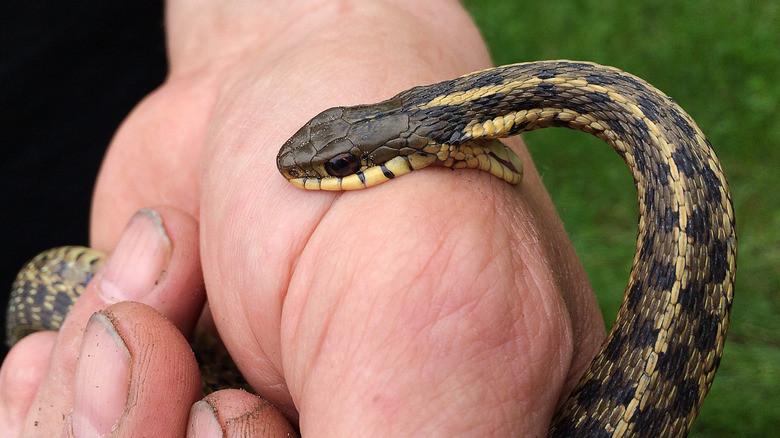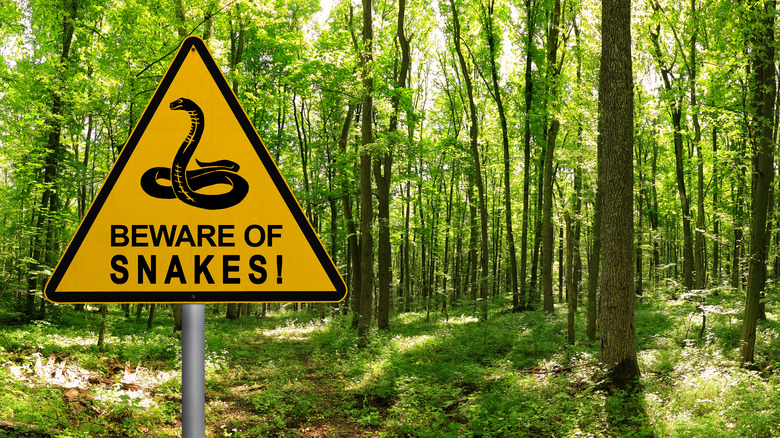What You Should Never Do After A Snake Bite
Being bitten by a snake may seem like something from a horror film, but if you live in an area that is native to snakes or you're planning an upcoming camping trip, being informed about what to do when you encounter one of these slithering reptiles can help you stay safe. The Centers for Disease Control and Prevention (CDC) reports that an estimated 7,000 to 8,000 people are bitten by venomous snakes in the United States each year, but there are only approximately five deaths. The odds of survival are in your favor, but treating a snake bite successfully requires knowing the dos and don'ts of first aid.
If you or someone near you is bitten by a snake, there are several things you should not do in your response. For starters, don't ever try to suck the venom out of a snake bite wound, as the venom will simply enter your body through your mouth (per CDC). Refrain from consuming alcohol and caffeinated beverages. Don't try to slash the wound open and squeeze the venom out, as this can lead to infection and a deeper injury. Don't apply ice to the bite or tie a tourniquet around the affected area. Most importantly, never try to pick the snake up or handle it in any way since doing so could risk additional bites to you or someone else.
How to respond to a snake bite
Upon the occurrence of a snake bite, the very first thing you should do is call 911 or the emergency services number in the local area (via Mayo Clinic). While waiting for emergency medical personnel, move as far away from the snake as you can so you mitigate the risk of additional bites. After you are out of the snake's striking range, find a position that keeps the bitten area below your heart and chest. You can even decrease the spread of the venom by remaining as calm and still as possible. If someone else is with you, have them remove any clothing, especially tight clothing, and jewelry to minimize swelling. If you are alone, do your best to remove these items without raising the area of the bite above the level of your heart. The bite wound can be cleansed with soap and water and loosely draped with a dry dressing. Be mindful of only placing clean items on and near the bite so that bacteria and other foreign agents don't enter your body and cause infection.
When it comes to preventing snake bites, there are several things to keep in mind. UC Davis Health advises that if you plan to go hiking or camping, do research to find out which snakes are native to the area and wear appropriate clothing to add a layer of protection. All in all, keep an eye out for snakes as you engage in outdoor activities.


